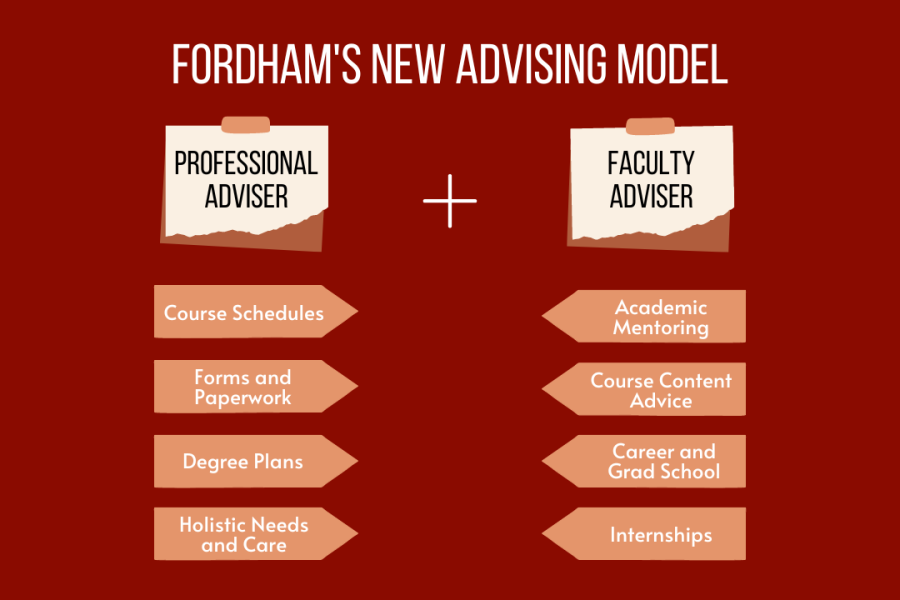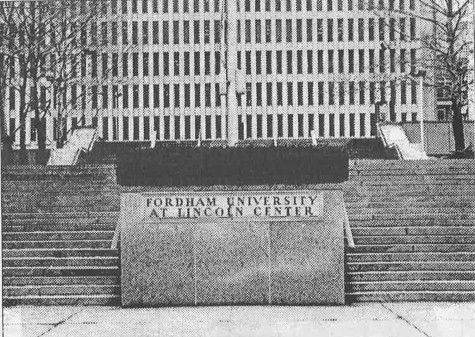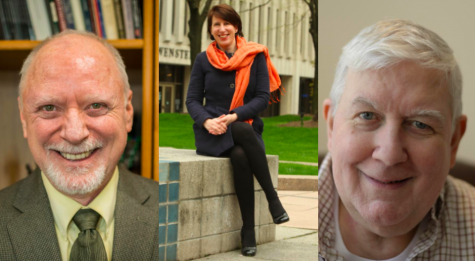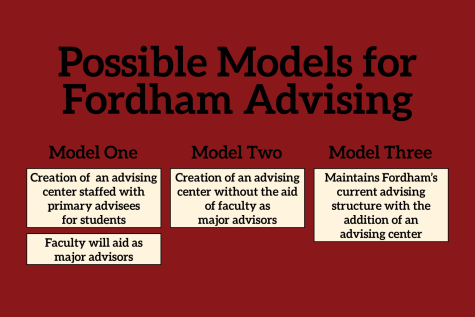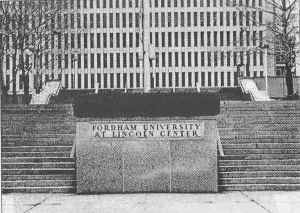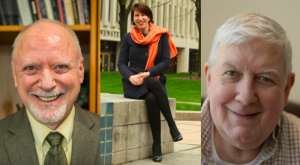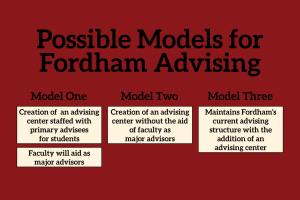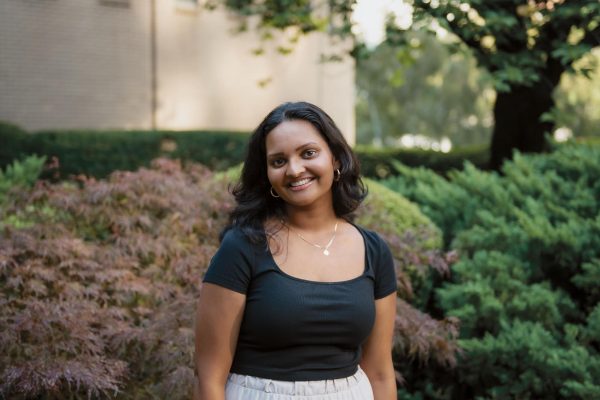Fordham Deans Roll Out New Advising System for Class of 2026
In the updated model, students will be led by one of eight professional advisers rather than a faculty member
The new advising model will offer a holistic approach and provide students with a professional adviser who will remain with them over the course of their time at Fordham.
September 15, 2022
While welcoming the Class of 2026 onto Fordham’s campuses, the Fordham College at Lincoln Center (FCLC) and Fordham College at Rose Hill (FCRH) deans’ offices introduced a new mode of advising. The modifications, which were inspired by other universities’ models and student feedback, is being implemented for current first-year students.
Maura Mast, dean of FCRH, explained that the new advising system stems from the university’s strategic plan to redesign policies and practices for academic advising and student support from the perspective of student access.
A substantial goal of Mast and Auricchio’s was the formation of an advising center, based on ensuring that students were sufficiently served by their academic advisers.
The idea for a new advising system was first conceived in 2020, when both deans assembled the Task Force on Undergraduate Academic Advising (TFUAA). It is composed of 18 people, consisting of faculty, staff and students and was established to accomplish three goals: the fulfillment of current student needs, the examination of advising practices in the field at institutions with superior retention rates to implement their strategies, and the proposition of potential models that are grounded in success.
The advising center compiled the three models, circulated them and organized town halls and anonymous surveys, according to Auricchio. She noted that a large subset of students from both undergraduate campuses responded to the surveys and that they measured students’ opinions of the models.
“What we learned was that people really liked models one and number two,” she said. “So then we delved deeper to see what were the things they liked about them each and what they did not like about. So, we crafted model 1.5 that took the best of each of those.”
Model 1.5 entails the creation of the Fordham College Advising Center that is led by Associate Dean for Academic Advising Ashlee Burrs, a newly developed position to oversee the center.
Model 1.5 entails the creation of the Fordham College Advising Center that is led by Associate Dean for Academic Advising Ashlee Burrs, a newly developed position to oversee the center. Additionally, the team consists of eight professional advisers who will serve as advisers for the Class of 2026.
“They’re trained in advising and experienced in advising,” Mast said. “They have advanced degrees in higher education, leadership, development or student affairs.”
Mast described the associate dean’s role as “crucial” and noted that the role entails professional development and attending advising conferences, among other responsibilities.
Burrs emphasized that the new model for academic advising intends to provide students with holistic advising and support in terms of their academic pursuits on campus and ensures that students are connected to campus resources for their success.
Auricchio shared that recruiting a professional adviser to remain with their student over the course of their time at Fordham is to ameliorate frustrations from students who felt passed around from adviser to adviser.
“The new model allows the student to form a connection with the adviser as opposed to switching from Summer advisers, to a Class Dean who was different each year, and then a faculty adviser,” Burrs noted.
Auricchio shared that recruiting a professional adviser to remain with their student over the course of their time at Fordham is to ameliorate frustrations from students who felt passed around from adviser to adviser. Her hope is that students will be well acquainted with their professional adviser.
The new structure of the 1.5 model details that eventually all advising will be handled by the professional advisers and faculty members will assume a mentoring role, engaging with students in conversations that play into their strengths. Mast gave the example of a faculty member serving as a mentor to a student pursuing a minor in creative writing by connecting them to the publishing industry and helping them make sense of their opportunities.
In the current model of advising in place for the Classes of 2025, 2024 and 2023, advisers are faculty members who assist with registration, academic support, professional development and other responsibilities. In the new model, the professional adviser will fully assume this role and its respective responsibilities.
“No one likes lifting holds, no one likes those emails the day before registration,” Mast said. “The advisers are going to be in front of all of that, they are going to be proactively making sure that students know what they are going to do through registration.”
The new system is only established for first-year students, with sophomore, junior and senior students continuing in the existing models. The Class of 2025 is continuing with the same academic adviser as the previous year, Dean Conor O’Kane, during the 2022-23 academic year.
“Picture this as a wave: A new wave is coming in, and it has first hit the Class of 2026. It will next hit the Class of 2027, 2028 and so forth, but the classes that are already here are continuing in this existing model,” Auricchio clarified.
Mast explained that students expressed dissatisfaction and confusion with the current model in which they felt as if they had to contact numerous different deans and offices for an answer.
Mast explained that students expressed dissatisfaction and confusion with the current model in which they felt as if they had to contact numerous different deans and offices for an answer. She spotlighted students’ desire for high quality and informed advising from professors who reflect their identity and lived experiences.
Auricchio and Mast drew inspiration from institutions such as the University of Notre Dame and Loyola University Chicago. Auricchio noted that since the concept of professional advising is implemented at many other universities; she was surprised to learn about the faculty advising model at Fordham.
“The idea of professional advising is one that actually has been around in a lot of universities for a long time,” Auricchio shared. “The general concept is something that is really common.”
Both Mast and Auricchio shared that they are excited to offer a new opportunity to students. They shared their gratitude toward students who filled out feedback forms and attended listening sessions.

